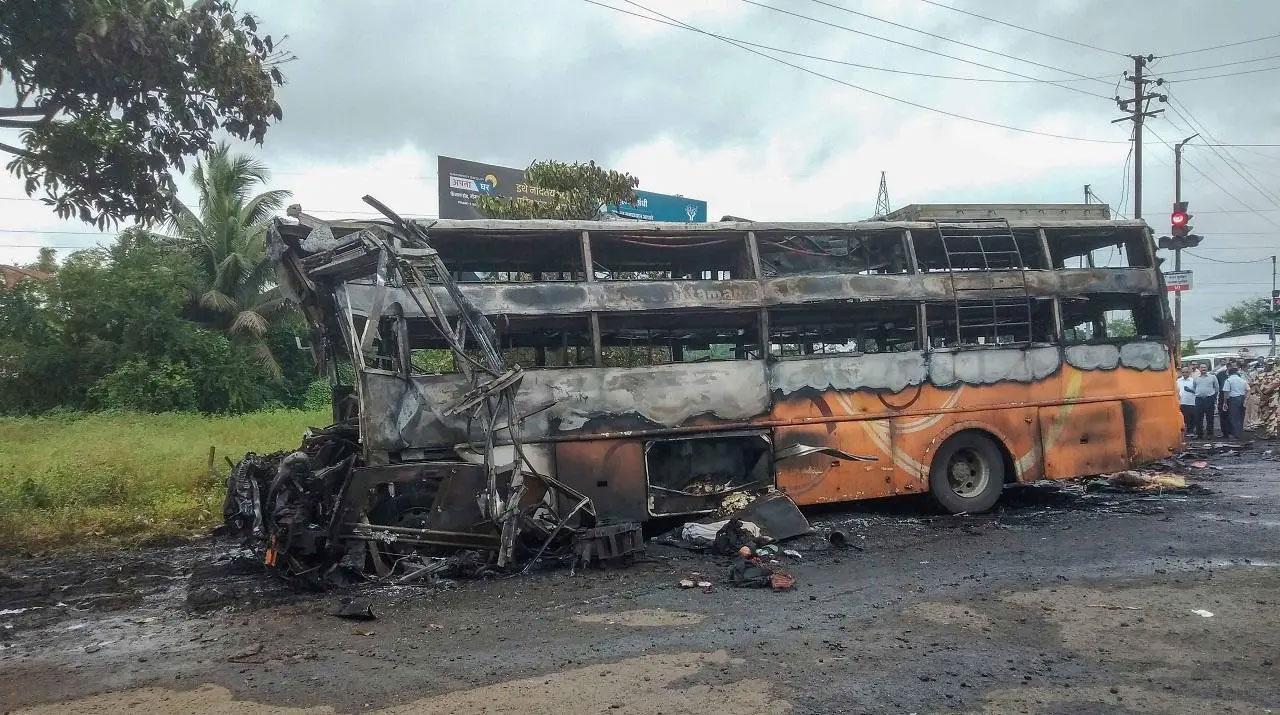The bus, which was travelling to Mumbai from Pusad in Yavatmal district, was carrying far more passengers than it could accommodate

Representative Image
The Nashik police arrested the absconding driver of the trailer truck that collided with a luxury sleeper bus killing 12 and leaving 43 injured. The bus was overloaded at the time of the mishap.
ADVERTISEMENT
The bus, which was travelling to Mumbai from Pusad in Yavatmal district, was carrying far more passengers than it could accommodate. It had a capacity of 30 passengers, according to the initial passenger list, but 53 to 55 people were on board, as evidenced by the list of injured and dead, the cop stated in a report in this paper.
While there are several factors like condition of the vehicles, papers which should be in order and others to be investigated, the overload statement should be a red flag.
We want to warn Mumbaikars that overloading vehicles is always a problem as that may result in loss of control. One need not even be travelling long distances on highways or crossing borders. Even while commuting in cities, one has to keep within the load limit.
There is a good reason why vehicles have rules stipulating maximum number of passengers or load. In Mumbai, we see rickshaws in certain stretches, cramming in four or more as they weave their way precariously, wobbling over potholes and squeezing through narrow lanes. The added load often makes the rickshaw tilt dangerously to one side. Certain rickshaws double up as school buses, ferrying so many children in one rickshaw. Sometimes an adult (a parent) is also inside this vehicle.
We have two wheelers, with a driver and pillion and then some. Children sit in the middle, there is another child at times in front, and this is absolute mayhem.
Vehicles carrying loads like goods must also stick to the rules. Overloading should attract the strictest penalties.
 Subscribe today by clicking the link and stay updated with the latest news!" Click here!
Subscribe today by clicking the link and stay updated with the latest news!" Click here!







